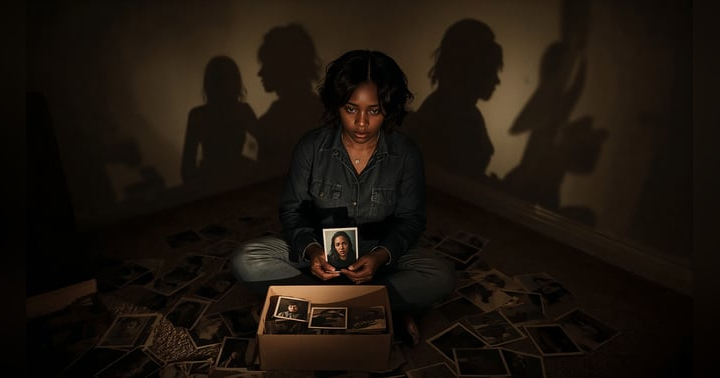Why Nia Didn’t Make It In The End

“We rarely ask: can they hold that height forever?”
That line from Rewriting The Conversation Around Suicide encapsulates the painful paradox at the heart of Dr. Nia Hollowell’s story—a woman lauded for her brilliance, her impact, her composure—who, in the end, dies by suicide. But that is when the questions started to come in:
"Dominic, why didn't Nia make it?"
When I write these story arcs in episodes of Mental Health Rewritten, I can assure you that it is with intention. It was not for shock value. It’s meant to be a mirror because this ending is the truth for too many.
Mental Health Rewritten: A Different Kind of Narrative Arc
So much of modern storytelling about mental health follows a predictable formula: things were fine, then they weren’t, and I hit rock bottom, then someone asked for help, and now everything is okay. This arc is comforting, hopeful, even essential in some spaces. But it’s not the whole truth.
Mental health isn’t linear. Recovery isn’t guaranteed. And for some, the pain persists beyond the intervention. Mental Health Rewritten is built to reflect that reality.
Episode 105 exists to confront a brutal, necessary truth: some stories don’t end with healing. Some end with loss. And ignoring that—romanticizing recovery without acknowledging relapse, complexity, or systemic failure—doesn’t serve the people we claim to represent. If we only tell success stories, we invisibilize the suffering that lingers in silence.
That’s why the episode doesn’t resolve neatly. Nia doesn’t “bounce back.” Because sometimes, despite all the strength, support, and stature in the world, someone still dies by suicide. That is a tragedy—but it’s not a failure. It’s a reality. And our work must begin with honoring that truth, not rewriting it to make ourselves more comfortable.
Why Nia Was a Black Woman?
This was another question I received.
Choosing to make Nia a Black woman wasn’t an afterthought. It was the core of the episode’s emotional arc.
There is a deep, aching tension that Black women across America have articulated for generations: the feeling of being everything for everyone, yet left holding their own collapse in private. This is not just metaphor. It is a chronic, exhausting reality.
Black women are routinely praised for their resilience. They’re labeled “strong” like it’s a compliment. But sometimes that strength is just the mask for what’s actually killing them inside. They are the friends who check in. The caregivers. The professionals who change lives. But when they’re the ones in need? Too often, no one shows up.
Nia is all of that, which is why I made her a public health expert. She was meant to be a symbol of impact, a model of “doing everything right.” She’s applauded at conferences, admired by the next generation. But her inner monologue reveals the truth: “Everyone thinks I’m full. But I’m starving.”
In Nia, we wanted to embody that exhaustion. That invisible labor. That starvation for reciprocity. And we wanted to show what happens when the pedestal becomes a prison—when brilliance becomes a burden no one else is willing to share.
Reality Over Resolution
This episode ends with a loss. But it’s not hopeless. It’s honest. And that honesty is itself a kind of resistance—against toxic optimism, against narrative erasure, against the silence that too often follows when someone dies by suicide.
Dr. Nia Hollowell’s story is a tragedy. But it is also a reminder. That mental health conversations must expand to include those we’ve lost. Honoring that resilience also means holding space for grief. And that sometimes, the bravest thing we can do is tell the stories that don’t end with healing—but with heartbreak.
So I as I continue working on Episode 106 remember this: Mental Health Rewritten isn’t here to tidy up trauma. We’re here to tell the truth—even when it hurts.
Take Care Of Your Self.








